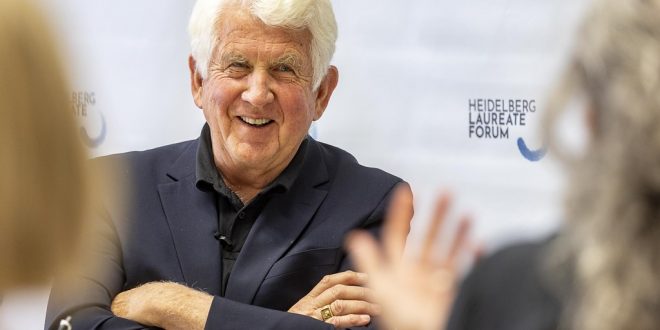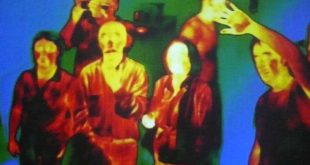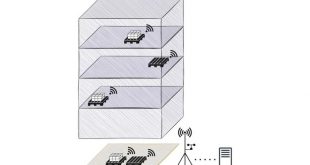By Abdulrahman Abotaleb
Yemen Science – Execlusive
Heidelberg, September 2023
“I became more famous for eating my newspapers’ column than for inventing Ethernet. People love it when you admit you were wrong. Eating my article was like a patent of repentance for my error.” Metcalfe.
The dinner table buzzed with intellectual curiosity in one of the wonderful evenings of the Heidelberg Laureate Forum HLF10 as Robert Metcalfe, the man who quite literally wired the world, leaned back with a mischievous grin. Amid plates of hearty German cuisine, he recounted the moment he famously ate his words—quite literally—after a failed prediction about the catastrophic collapse of the Internet. “Ironically,” he chuckled, “I became more famous for eating that column than for inventing Ethernet.” His laughter, rich with humility and the wisdom of decades, set the tone for an evening that delved deep into the digital age’s roots and its boundless future.
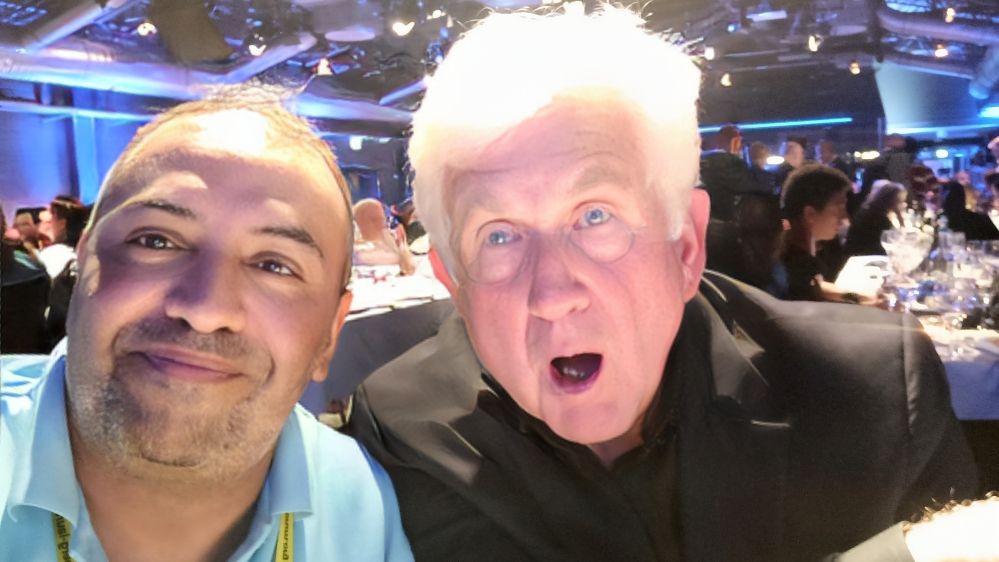
Meeting Robert Metcalfe at the Heidelberg Laureate Forum was akin to shaking hands with history. A towering figure in the evolution of modern communications, Metcalfe’s invention of Ethernet in the 1970s revolutionized how computers connect, laying the groundwork for today’s Internet. But beyond the accolades and patents, it’s his enduring curiosity and candid reflections that captivated me, and indeed, everyone lucky enough to engage with him.
The Spark That Ignited a Global Network
Metcalfe’s keynote at the forum was a masterclass in both history and vision. He transported the audience to an era when computer networking was an uncharted frontier. Growing up, he recalled the prohibitive cost of long-distance phone calls—a barrier that sparked his interest in creating efficient communication technologies. “I used to reassure my mother I’d arrived safely by letting the phone ring three times and hanging up,” he quipped, a simple hack that hinted at the ingenuity to come.
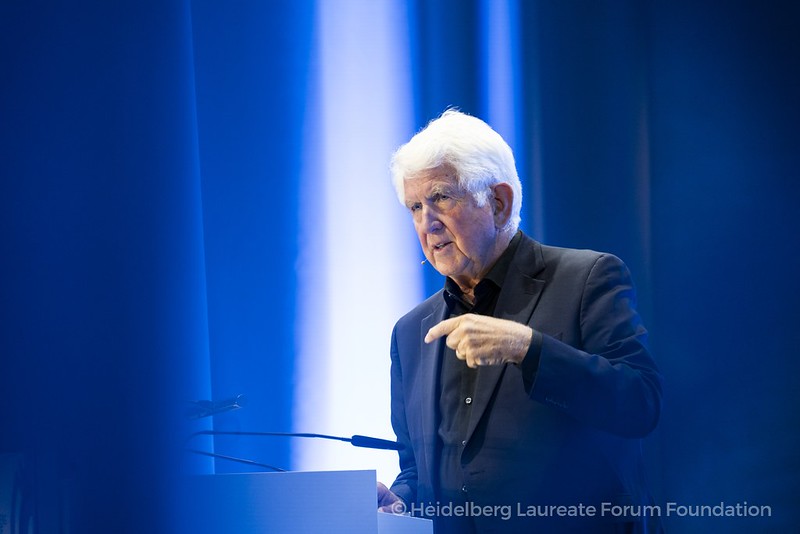
That need for better connectivity led to Ethernet, developed at Xerox PARC in 1973. Unlike prior networking methods, Ethernet allowed computers to communicate seamlessly over local networks using standardized protocols. “People think of Ethernet as just cables,” Metcalfe noted, “but it’s really the protocols—the rules that allow devices to talk to each other—that changed everything.”
His invention laid the foundation for modern networking, enabling everything from corporate intranets to the vast expanse of the global Internet. It’s hard to overstate its significance: Ethernet didn’t just connect computers; it connected people, ideas, and ultimately, the world.
Predictions, Pitfalls, and the Power of Being Wrong
“The Internet is resilient, and we saw that during the pandemic. Just sending an image was once an achievement in the early Internet, but now it seems as though we built the Internet specifically for the pandemic. So I can predict that the Internet is capable of much more.” Metcalfe
During the dinner, I posed a question that had been simmering in my mind: Could the Internet’s current architecture withstand the demands of emerging technologies like AI, the Internet of Things, and augmented reality?
Metcalfe’s response was characteristically bold: “Of course. The Internet is resilient, and we saw that during the pandemic. It’s as if we built the Internet specifically for such a crisis.”
Then, with a wry smile, he added, “I say this even though I have a history of failed predictions.” He recounted his infamous 1995 declaration predicting the Internet’s imminent collapse—a forecast that spectacularly missed the mark. True to his word, he literally ate a printed copy of the column during a keynote at the 1997 World Wide Web Conference.
“That mistake made me more famous than Ethernet,” he laughed. “But it taught me something invaluable: people love it when you admit you’re wrong. It’s like a patent of repentance.”
Ironically, his erroneous prediction may have spurred improvements, as engineers worked tirelessly to prove him wrong. It’s a testament to the self-correcting nature of both technology and the minds that drive it.
Wired for the Future: Ethernet’s Enduring Legacy
“We actually started the Ethernet with a wireless radio network. We could have continued with that approach and saved all those cables from going to waste but it wasn’t practical back then because it required huge modems.” Metcalfe
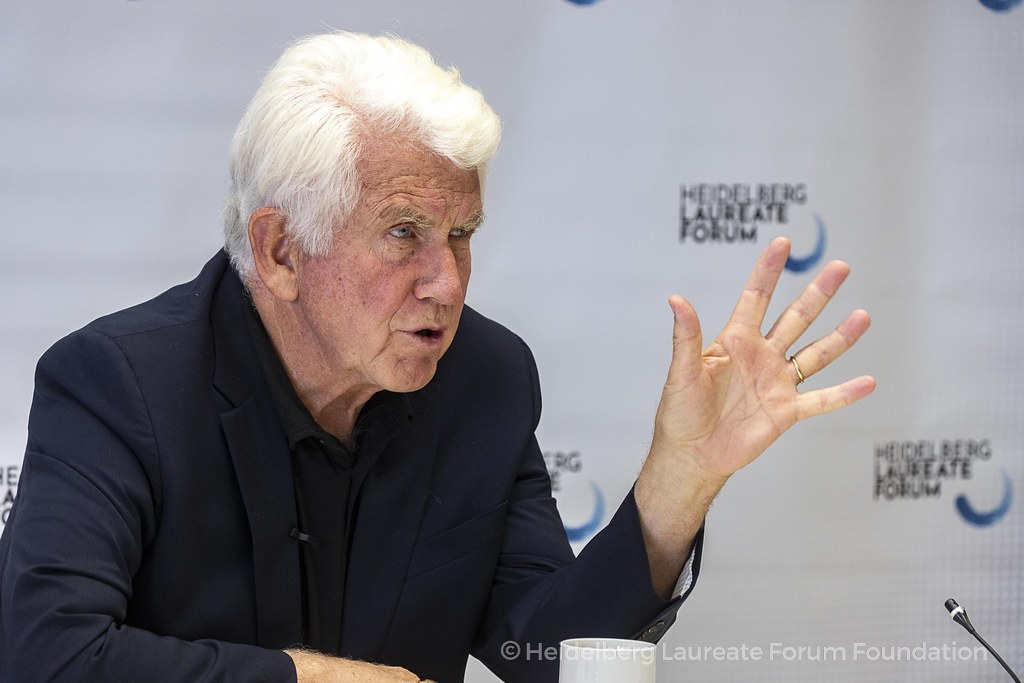
In a world increasingly dominated by wireless connectivity, I asked Metcalfe if he felt his wired invention was becoming obsolete.
“Not at all,” he replied with conviction. “You go wireless when you have to—when mobility is essential or laying cables isn’t practical. But wired networks are still the backbone. Even Wi-Fi relies on Ethernet at its core.”
He revealed a surprising tidbit: Ethernet was initially envisioned as a wireless technology. “We started with radio networks, but the technology wasn’t mature. So we pivoted to cables. Funny how things come full circle.”
His perspective reframed the wireless-versus-wired debate. Ethernet isn’t just an invention from the past; it’s a living, evolving technology that underpins our digital future.
The Internet is an Infrastructure, Not Ideology
As the press conference turned philosophical, the topic of Internet access as a human right has been broached, a view gaining traction globally. Metcalfe shook his head. “I don’t like the term ‘human rights’ in this context. It makes the conversation ideological. The Internet is infrastructure, like roads or electricity. We should focus on expanding it, making it cheaper and faster.”
His pragmatism was refreshing. Rather than framing access as a moral issue, he sees it as a practical challenge: build better networks, and the rest will follow.
Navigating the Geopolitics of Technology
“The Internet landscape is increasingly marked by a geopolitical struggle. Competition in general is good, but the type of competition happening between the U.S. and China is not healthy.” Metcalfe
Of course, no discussion about the Internet is complete without addressing its geopolitical dimensions. The U.S.-China tech rivalry loomed large in our dialogue.
“Competition is healthy,” Metcalfe acknowledged, “but what’s happening now isn’t the good kind. It’s riddled with espionage and distrust.”
He recounted personal experiences, including a blocked merger between his former company, 3Com, and Huawei due to national security concerns. “It’s unsettling. We need to negotiate, set boundaries, and return to a healthier form of competition.”
His candidness on such sensitive topics was striking. Here was a man who’d helped build the very fabric of our digital lives, unafraid to critique the forces shaping its future.
Skeptical of Bureaucratic Oversight on AI Governance
“I don’t support the notion of establishing a global UN-affiliated agency to govern artificial intelligence technologies. The UN agencies know nothing about computer science and they’re immersed in bureaucratic behavior.” Metcalfe
Amid discussions at the forum about a proposed UN agency to oversee artificial intelligence, Metcalfe’s reaction was swift and unequivocal: “Terrifying. I’m not a fan of UN agencies meddling in technology. They’re bureaucratic and out of touch with the realities of computer science.”
Instead, he favors industry-led innovation over top-down regulation. “Let technologists set the rules. We’ve managed so far without global oversight, and the Internet didn’t collapse.”
The Classroom of the Future
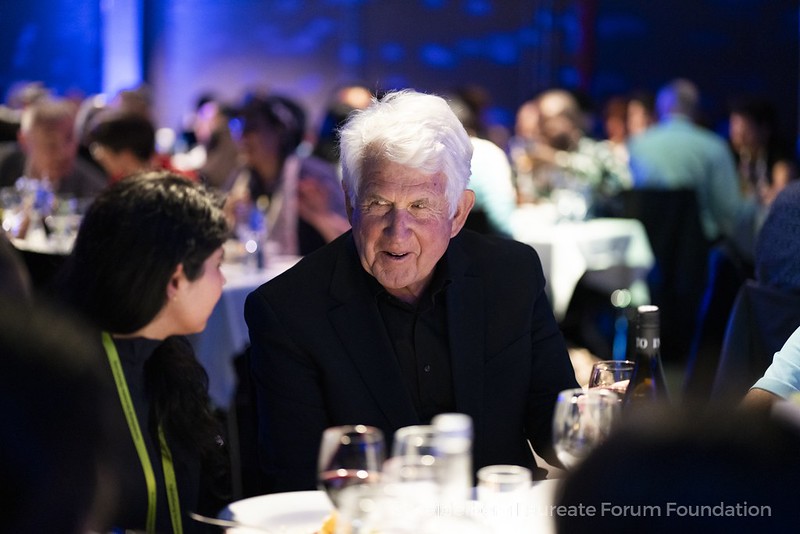
Education was another topic close to Metcalfe’s heart. Having pivoted between careers in academia, business, and technology, he predicts seismic shifts in how we learn.
“Universities are changing whether they like it or not. The gravitational pull is shifting from institutions to individual educators. The internet is democratizing knowledge.”
He reminisced about his early forays into video-based teaching in the 1970s—decades before online learning became mainstream. “Back then, faculty resisted it. They said, ‘But we want to hug our students!’” he joked.
Yet, his vision for the future of education is no joke. It’s a world where learning is fluid, accessible, and driven by curiosity rather than rigid curricula.
A Life Defined by Reinvention
Perhaps the most inspiring takeaway from my time with Robert Metcalfe is his ethos of continuous learning. “I change careers every ten years,” he said. “It keeps me sharp. Right now, I’m diving into computational engineering and geothermal energy.”
Despite his towering achievements, he remains a student at heart, tackling subjects like thermodynamics with the same enthusiasm he had when inventing Ethernet.
Lessons from a Digital Pioneer
As our days in Heidelberg wound down, I reflected on the breadth of Metcalfe’s journey—from inventing the technology that connects billions to candidly admitting his mistakes, from challenging geopolitical paradigms to reimagining education.
Robert Metcalfe’s story isn’t just about Ethernet. It’s about resilience, curiosity, and the courage to embrace both triumphs and failures. In an era obsessed with disruption, he embodies a quieter, more enduring form of innovation—one rooted in continuous learning and an unwavering belief in the transformative power of connection.
His legacy isn’t just etched in cables or code; it’s alive in every email sent, every video call made, and every young mind daring to ask, “What’s next?”
A Personal Note and Reflections from Heidelberg
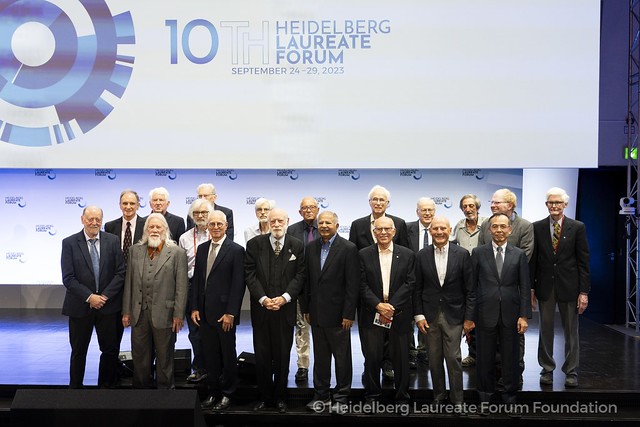
As I bid farewell to Heidelberg, my notebook brimming with ideas and my mind buzzing with thoughts, I couldn’t help but keep returning to a recurring theme that resonated with all the internet pioneers I encountered in the forum, such as Bob Metcalfe, Vint Cerf, Whitfield Deffie, Raj Reddy and others. They had all emphasized the fact that the Internet was still evolving and in a state of continuous development.
For someone who helped build its very foundations, this was a profound reminder. The Internet is not finished. It is not a monument but a living system—evolving, expanding, and still deeply contested. And just like in its earliest days, what comes next will depend not just on engineers and technologists, but on journalists, policymakers, activists, and ordinary users. People like you and me.
Meeting these legends didn’t just illuminate the past—it sharpened my sense of the future. In them, I saw a rare blend of invention and reflection, of visionary ambition grounded by humility. He reminded me that even the most transformative technologies are born not from machines, but from human curiosity—and sustained through collective responsibility.
As a journalist from Yemen, where the Internet remains both a lifeline and a battleground, this resonated deeply. The choices we make now—about access, governance, equity, and ethics—will define the digital world we leave behind. For every Ethernet cable that connects, there must be a principle that protects. For every new node we light up, we must ask: who’s still in the dark?
At the Heidelberg Laureate Forum, surrounded by some of the brightest minds in science and technology, I found not just inspiration, but a challenge. If we want the Internet to remain a force for good, we must fight for it—every day. Because the Internet isn’t just something we use. It’s something we shape.
 الشبكة اليمنية للعلوم والبيئة (يمن ساينس) موقع يهتم بأخبار العلوم والتكنولوجيا والصحة والبيئة والسكان
الشبكة اليمنية للعلوم والبيئة (يمن ساينس) موقع يهتم بأخبار العلوم والتكنولوجيا والصحة والبيئة والسكان
